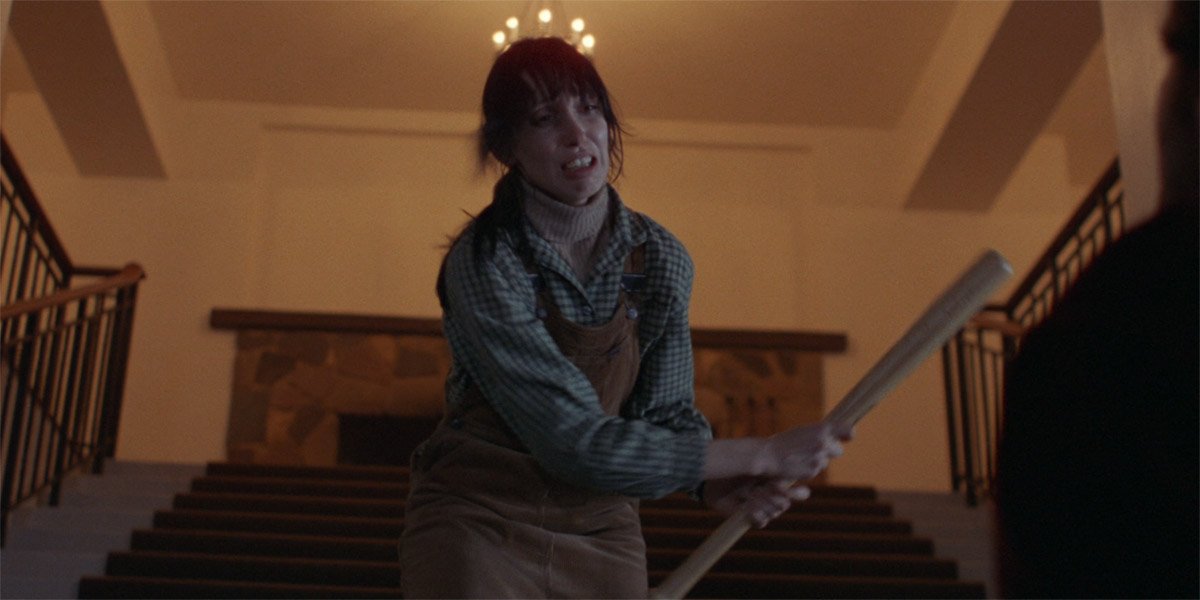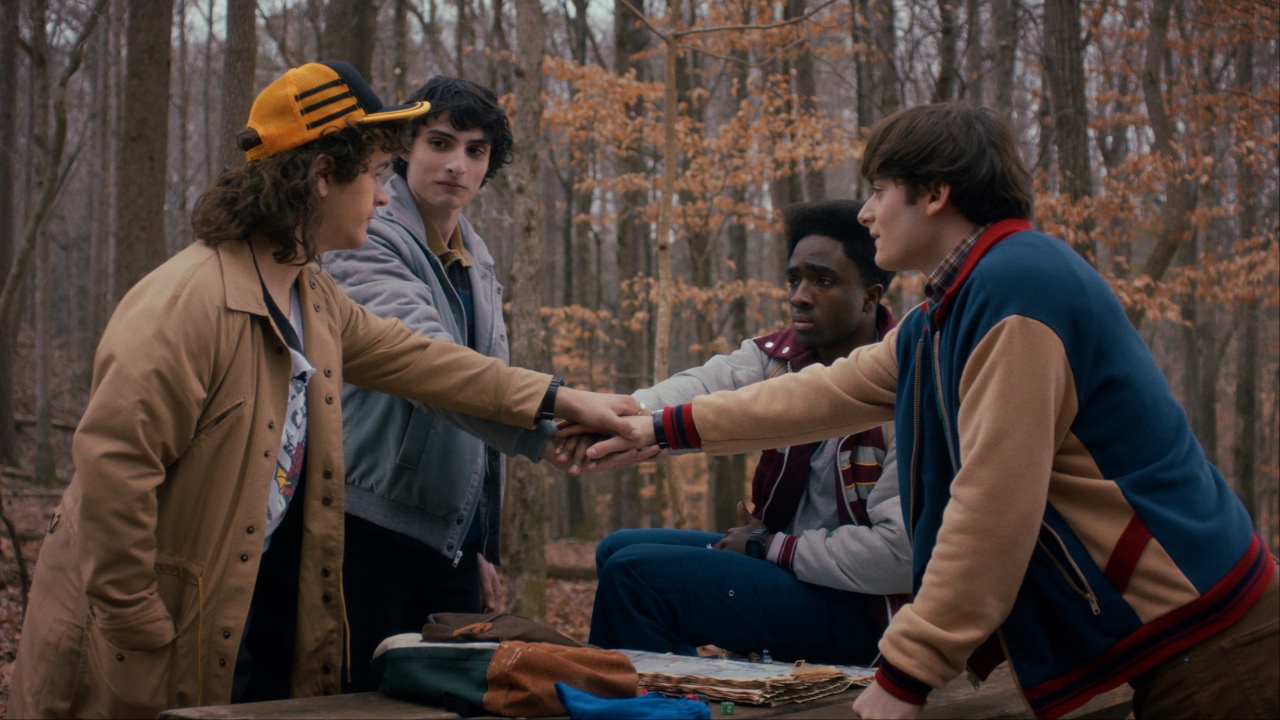Why The Shining's Shelley Duvall Recently Cried Rewatching An Iconic Scene

It's no secret that actress Shelley Duvall had a stressful and rough time during the making of Stanley Kubrick's The Shining. It's been thoroughly documented that the director actively antagonized her on set, and in combination with his perfectionist demands for dozens of takes of every shot and the 56-week shooting schedule, the experience weighed on her heavily and proved detrimental to her health. Ultimately it was work that the actor was proud of, with Duvall saying that she both resented and respected Kubrick's process in the making of the film – but it should probably come as no surprise that she became emotional when recently having the opportunity to revisit one of the horror classic's most iconic scenes.
The Hollywood Reporter has published a fantastic profile of Shelley Duvall, who made the decision years ago to leave the film industry behind, and one of the most striking moments chronicled in the piece is her reaction to rewatching the famous stairway scene in The Shining for the first time in multiple years. It's one of the most disturbing and frightening moments in the movie, with Duvall's Wendy Torrance discovering just how crazy her husband Jack (Jack Nicholson) has become, and the retired actress began crying while viewing it on the interviewer's phone. Asked why she was tearing up, Duvall said
Because we filmed that for about three weeks. Every day. It was very hard. Jack was so good — so damn scary. I can only imagine how many women go through this kind of thing.
The scene in question is one of the most important moments in The Shining. Wendy discovers that the "book" that her husband has been working on during their stay at the Overlook Hotel is nothing more than hundreds of pages with the sentence "All Work And No Play Makes Jack A Dull Boy" repeated over and over, and Jack isn't terribly excited to come upon her making the discovery. Frightened for her life and the life of her son Danny (Danny Lloyd), she slowly backs away from Jack, threatening him with a swinging baseball bat – and while her psychotic spouse doesn't raise his voice, he makes his violent intentions explicitly clear.
The Shining scene features Shelley Duvall at a full 10 on the emotional scale, as Wendy is beyond petrified to be witnessing her husband's psychotic descent. It's exhausting to even just imagine being in Wendy's position in the moment – which then helps you understand why Duvall had such an intense reaction to rewatching it. The idea of operating on that level for nearly a full month sounds like it must have been incredibly hard, particularly while playing opposite Jack Nicholson's madness and attempting to do everything Stanley Kubrick demanded.
All told, the stairway scene in The Shining took a shocking 127 takes to film – which incredibly wasn't the most of any single sequence in the movie, but obviously more than plenty. In retrospect it's challenging to question Stanley Kubrick's methodology, as it's utterly perfect in every way, but the same time the harsh psychological impact of the work wasn't inconsiderable, and that shouldn't be ignored.
The whole profile of Shelley Duvall is worth a read, examining a career full of awesome performances and her present life outside the limelight, and those looking to revisit The Shining – which is always a good call – can do so by streaming it on HBO Max.
Your Daily Blend of Entertainment News

Eric Eisenberg is the Assistant Managing Editor at CinemaBlend. After graduating Boston University and earning a bachelor’s degree in journalism, he took a part-time job as a staff writer for CinemaBlend, and after six months was offered the opportunity to move to Los Angeles and take on a newly created West Coast Editor position. Over a decade later, he's continuing to advance his interests and expertise. In addition to conducting filmmaker interviews and contributing to the news and feature content of the site, Eric also oversees the Movie Reviews section, writes the the weekend box office report (published Sundays), and is the site's resident Stephen King expert. He has two King-related columns.
